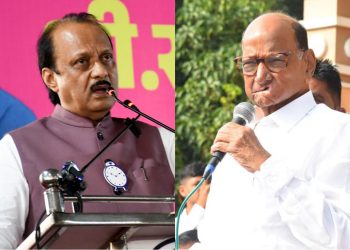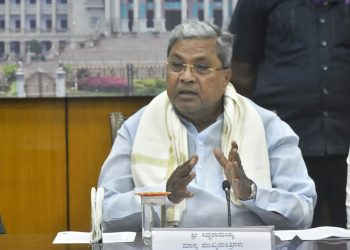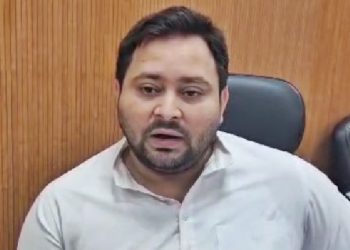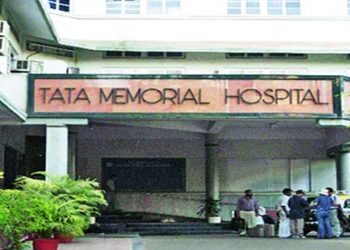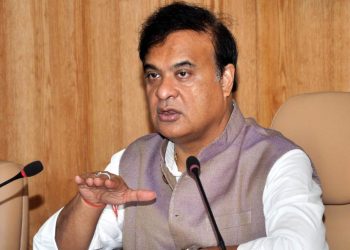New Delhi: Along with sponsoring terrorism, Pakistan has also been pushing drugs smuggling into Kashmir. The security agencies have red-flagged the neighbouring country recalibrating its hybrid war tactics in Jammu and Kashmir in which narco-terrorism is increasingly becoming a vital weapon.
Since late 1980s, when terrorism took roots in Kashmir, Pakistan’s proxy war was driven primarily by infiltration of trained terrorists into the Valley. Local youth were lured to PoK where they were trained to indulge in terror activities.
Pakistan was able to provide money through a network of separatists and religious leaders. However, with demonetisation followed by abrogation of Article 370 and the crackdown on separatists, the money trail has been totally curbed. In order to keep the funding alive for the terror outfits, Pakistan has now moved on to drugs smuggling.
Narco-terrorism implies the nexus between drug syndicates and terrorists that facilitate and fund terrorist activities. In Kashmir, the nexus is vital for Pakistan to keep the place troubled. It has been pushing in drugs through the land route — across the Line of Control and the International Border in Jammu and Kashmir and Punjab — and through drones.
The BSF, Army and the J&K Police have busted several Pakistan-sponsored narco-terror modules and arrested several people. Many of these are the over-ground workers of terror outfits like the Lashkar-e-Taiba and Hizbul Mujahideen.
In August 2022, the Border Security Force (BSF) recovered eight packets of heroin worth Rs 8 crore in the Samba district after a wounded terrorist fled back to Pakistan.
In September, the J&K Police arrested a couple from Punjab with 7 kg heroin in Udhampur district. Additional DGP Mukesh Singh had said the couple were from Ram Tirath Road in Amritsar and were carrying the drugs in their car. The couple was inter-state drug smugglers.
In October, 21.5 kg heroin was seized in Udhampur from a Punjab-bound truck. The truck driver was in touch with a Pakistan-based handler who had been guiding him through a social media application. The police claimed that the driver had been to the Valley two to three times earlier.
This year alone, illegal consignments worth hundreds of crores have been seized by the J&K Police.
Terror groups in Pakistan are already under pressure as the Indian security and intelligence agencies have disrupted their network by arresting the associates of terrorists and freezing their bank accounts.
J&K DGP Dilbag Singh had said recently that narco-terrorism by Pakistan was the biggest challenge for the security forces.
He had said, “Though the police are dealing with narco-terrorism effectively by busting modules, a lot more needs to be done.”
The National Crime Records Bureau (NCRB) in its September report had revealed that in J&K, 1,681 cases were registered under the Narcotic Drugs and Psychotropic Substances (NDPS) Act in 2021. Around 357 cases were registered for possessing drugs for personal use. Around 1,324 cases were registered for possession of drugs for trafficking.
In 2019, over 3,850 IV heroin abuse cases were recorded, while the number rose to 13,200 in 2021.
In the first quarter of 2021-2022, the J&K Police launched a major crackdown to curb narcotics smuggling and arrested over 1,232 drug peddlers and filed 867 FIRs.
The security agencies do maintain a tight vigil along the areas falling close to the border, including Uri, Kupwara, Rajouri and Poonch as Pakistan is behind the transportation of drugs into J&K.
Pakistan’s support to drug smuggling happens through its intelligence agency, ISI. The smuggling is said to be a vital part in its covert military operations, including Kashmir.
A revelation to this effect was made by Pakistan’s former Prime Minister, Nawaz Sharif, in an interview to the Washington Post — ‘Heroin plan by top Pakistanis alleged’ dated September 12, 1994.
The article says, “Sharif claimed that three months after his election as Prime Minister in November 1990, Gen. Aslam Beg, then chief of army staff, and Gen. Asad Durrani, then head of the military’s Inter-Services Intelligence bureau (ISI), told him the armed forces needed more money for covert foreign operations and wanted to raise it through large-scale drug deals.
“According to military sources, the intelligence agency has been pinched for funds since the war in Afghanistan ended in 1989 and foreign governments — chiefly the United States — stopped funneling money and arms through the ISI to Afghan mujahideen guerrillas fighting the Soviet-backed Kabul government.
“Without the foreign funds, the sources said, it has been difficult for the agency to continue the same level of operations in other areas, including aiding militants fighting Indian troops across the border in Kashmir. Such operations are increasingly being financed through money raised by such private organizations as the Jamiat-i-Islami, a leading fundamentalist political party.”
As the interview excerpts show, the increasing drug use for terror and business is the hidden policy of the Pakistan establishment. What is being witnessed in Kashmir, is only an extension of the ‘blueprint’.
Since Jammu and Kashmir is situated in close vicinity to the golden crescent — a name given to South Asia’s opium-producing countries Afghanistan, Iran, and Pakistan — which produces 80 per cent of the world’s opium, the drug flow is easily channelised.
Fighting this form of terrorism is not easy.
J&K Police chief Dilbag Singh said that narco-terrorism is the biggest challenge for security forces as the neighbouring country wants to destroy the new generation on one hand, and pump the money earned out of narco sales to fuel militancy on the other.
Earlier, former J&K DGP S.P. Vaid had said that the drugs menace is a bigger challenge than terrorism in the UT, and contrabands are being “pumped from across the border by people who want our future generations to be addicted to drugs so that they can succeed in their nefarious ploys”.
The NCRB report on drugs abuse in Jammu and Kashmir has indicated an increase by 35 per cent in drug abuse cases in 2021 as compared to the ones registered in 2020.
A report by the National Drug Dependence Treatment Centre in AIIMS revealed that over six lakh people in Jammu and Kashmir are victims of drug abuse.
The patient intake records at the Institute of Mental Health and Neurosciences (IMHANS) in Kashmir attested to the spiralling problem and said that 90 per cent of the drug users were in the 17-33 age group.
Kashmir is a test case of Pakistan’s evil designs. First, it worked on the religious sentiments of the Kashmiris to garner a false narrative of a ‘Muslim Kashmir’ opting naturally for Pakistan, and then pushing in terrorism in the name of ‘armed struggle’ for so-called ‘freedom’.
Failing in the designs, it is now forcing the contraband goods, especially heroin, into the Valley. In this dirty game, it is the Kashmiri society and the youth in particular, which is getting ruined.
(IANS)



